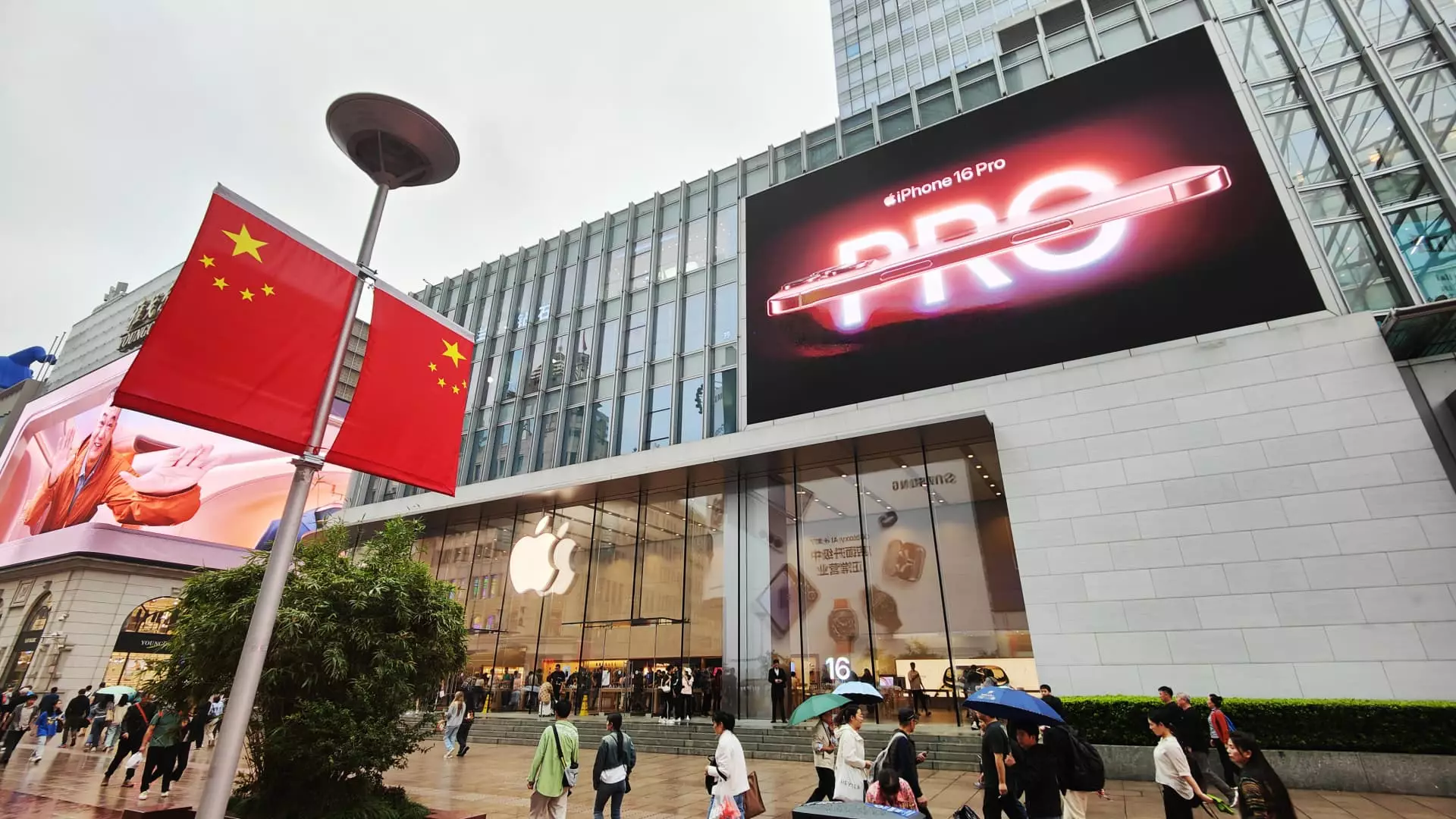Recent statistics reveal a troubling trend for foreign mobile phone brands in China, with significant sales declines reported for November. Official data indicates that shipments of foreign smartphones have plummeted to just 3.04 million units, which is a staggering decrease of 47.4% compared to the same month last year and an even more dramatic 51% drop from October of the previous year. These figures, sourced from the China Academy of Information and Communications Technology (CAICT), serve as a harsh reminder of the increasing challenges that international manufacturers, such as Apple, face in maintaining their foothold in this vast and competitive market.
The Dominance of Domestic Brands
Apple, as the largest foreign vendor, finds itself under immense pressure given that it constitutes a significant portion of foreign shipments. While brands like Samsung are present, their market share pales in comparison. The competition from local players is intensifying, with Huawei making notable strides. Once hampered by U.S. sanctions that severely affected its mobile handset business, Huawei has staged a remarkable comeback with advanced smartphone releases that have captivated Chinese consumers. The resurgence of Huawei is particularly striking, as it eclipsed Apple’s growth in Q3 of the previous year, according to data from research firm IDC.
Apple’s last-ditch effort to regain ground hinges on its recently launched iPhone 16 series, first introduced in September. The company has introduced several cutting-edge artificial intelligence features, branded under Apple Intelligence, which it hopes will entice users. However, a significant roadblock in this strategy lies in the stringent regulatory environment surrounding AI in China. Currently, this software remains unavailable in the region, leaving Apple at a disadvantage against local competitors who have swiftly adopted and promoted their own AI capabilities.
The significance of the Chinese market for Apple cannot be overstated. CEO Tim Cook made multiple trips to the country in efforts to establish partnerships and strategies pertinent to the deployment of Apple Intelligence. This proactive approach highlights Apple’s acknowledgment of the urgent need to adapt and innovate within the unique framework of Chinese consumer preferences and regulatory constraints. The company’s eagerness to capitalize on holiday seasons speaks volumes; Apple is set to launch promotional discounts for the iPhone 16 to coincide with the Lunar New Year, underscoring its determination to stimulate interest and sales during peak shopping periods.
The declining figures for foreign smartphone sales in China signal a challenging environment where domestic brands are not only thriving but also innovating at a faster pace. For Apple, regaining market share will require not just technological advancements but also an agile response to regulatory and cultural dynamics in China. As competition heats up, the path ahead is fraught with both challenges and opportunities that will ultimately shape the future landscape of the smartphone industry in one of the world’s largest markets.


Leave a Reply